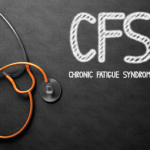LONDON (Reuters)—Scientists exploring what may trigger chronic fatigue syndrome (CFS) have found clues in the way some people’s immune systems respond to interferon alpha.1
The researchers used the drug to create a model of the disease in people without CFS but with hepatitis C. Many patients who receive interferon alpha experience extreme fatigue during treatment, and some continue to feel chronic fatigue for many months after the drug course is completed.
The researchers measured fatigue and immune system markers in 55 patients with hepatitis C before, during and after treatment with interferon alpha.
Eighteen of the 55 went on to develop a CFS-like illness—and all 18 had a hyperactive immune system before treatment, and a highly overactive response during treatment, they reported Dec. 17 in Psychoneuroendocrinology.
“[This suggests] people who have an exaggerated immune response to a trigger may be more at risk of developing CFS,” Alice Russell of King’s College London’s Institute of Psychiatry, Psychology & Neuroscience (IoPPN), told reporters at a briefing about the findings.
“For the first time, we have shown that people who are prone to develop a CFS-like illness have an overactive immune system, both before and during a challenge to the immune system,” said Ms. Russell, who led the work.
The condition, as well as research into it, is highly contentious, in part because its possible causes and range of debilitating symptoms are poorly understood.
IoPPN Professor Carmine Pariante stressed that while the study’s main finding is a useful addition to scant scientific knowledge about CFS—also known as myalgic encephalopathy (ME)—it offers few clues on how to treat, cure or prevent it.
“It’s a light in the fog,” he told reporters.
“But a better understanding of the biology underlying the development of CFS is needed to help patients.”
Reference
- Russell A, Hepgul N, Nikkheslat N, et al. Persistent fatigue induced by interferon-alpha: A novel, inflammation-based, proxy model of chronic fatigue syndrome. Psychoneuroendocrinology. 2018 Dec 17.


